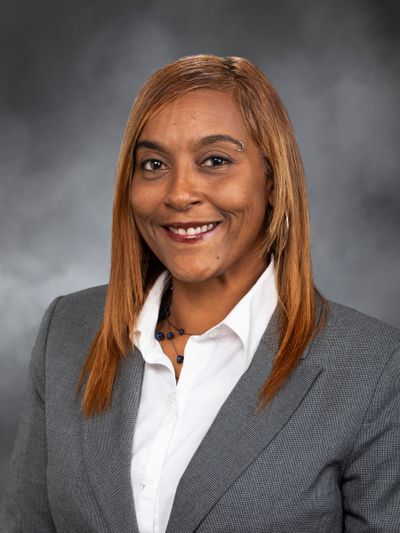Cannabis Social Equity Task Force continues its efforts

In 2020, Washington lawmakers created a Cannabis Social Equity Task Force, with the goal of better listening to and responding to residents who feel they’ve been negatively impacted by cannabis laws.
The group was tasked to “make recommendations to promote business ownership among individuals who have been disproportionately impacted by the war on drugs, in order to remedy the harms resulting from the enforcement of cannabis related laws.”
Its 21 members includes legislators, state employees, advocacy groups and members of the cannabis industry. Its overall goal is to “center the voices of black, indigenous and people of color communities that have been most impacted by enforcement of cannabis-related laws.”
State Rep. Melanie Morgan, who represents the 29th District that includes much of Tacoma, is the task force’s chair.
“Black/African Americans were left out of the original effort to legalize cannabis, and continue to be left out of today’s cannabis economy. You can see that trend clearly through the lack of Black/African Americans in the state with a cannabis license,” she said. “Cannabis was historically demonized, and many Black/African Americans were disproportionately arrested and over-sentenced because of the racism embedded in the war on drugs.”
Now that cannabis is legal, she said the industry can create an especially promising small businesses opportunity for Black/African Americans to leverage historical wrongs by creating small businesses that boost their local communities’ economy.
“My hope is that this will help the task force ensure that the cannabis industry is equitable,” Morgan said.
The task force ties into the state’s Cannabis Social Equity Program, designed to develop programs that can build up communities which have been disproportionately harmed by the war on drugs.
This year, with the passage of HB 1443, which expanded the marijuana social equity program, Washington is following the path that other legal states have taken to correct historical wrongs and encourage interest by social equity applicants. Applicants are defined as businesses that have majority ownership and control by at least one person in a disproportionately impacted area; a majority owner convicted of a misdemeanor marijuana offense; or who meets criteria defined in a rule by the LCB after consultation with the Commission of African American Affairs and other commissions. A business that is at least 51 percent minority- or woman-owned is eligible.
Task force and industry member Micah Sherman, owner of Ravengrass in Olympia, said virtual meetings of the task force started in earnest around April this year.
Sherman said the group has met virtually, and its meetings have been well attended by the public.
Jim Makoso, another task force member, is the CEO of Flowe. He’s also chair of the scientific advisory committee for the National Cannabis Industry Association and on the task force’s training and mentorship sub-group. He said tax revenue from retail cannabis sales funds the task force. Private contributions could also support the grant program. The group is setting up work groups to allocate funds appropriately.
Makoso said the grants are expected to be awarded to social equity applicants for mentorship and training rather than just writing a check. He hopes to have the mentorship and training program up and running by the middle of next year.
Next year’s legislative session is expected to be short, but task force members hope to receive funding for the grant program.
All minorities, or any underrepresented group interested in cannabis, are welcome to apply. No applications have been accepted as of mid-September, said Morgan.
She said the group meets regularly to discuss how to define, prioritize and implement the current social equity program, with final recommendations due in December 2022.
Morgan said the task force isn’t expected to be permanent: it will likely come in, make recommendations, and then allow the appropriate authorities to act. It is established through 2023, but it’s possible that its existence could be extended, or another group could continue any unfinished projects.
“Creating an equitable system takes time,” Morgan said. “It’s worth the delay to do this thoughtfully so we can overcome past harm and accomplish our shared goals. The task force is looking at recommendations to restructure the application process and scoring rubric, among other issues.
The Black/African American communities have been waiting hundreds of years for equity, so please do not expect that we will right the wrongs overnight. We want to be thoughtful and meaningful – do this right in order to lead to true inclusion.”